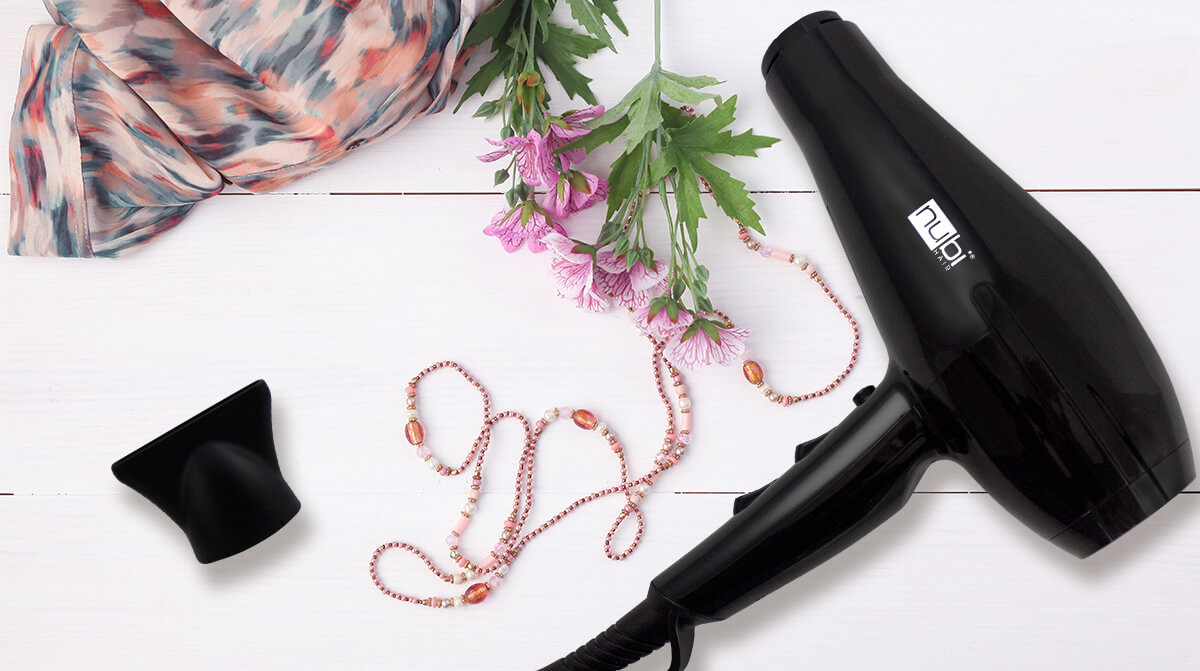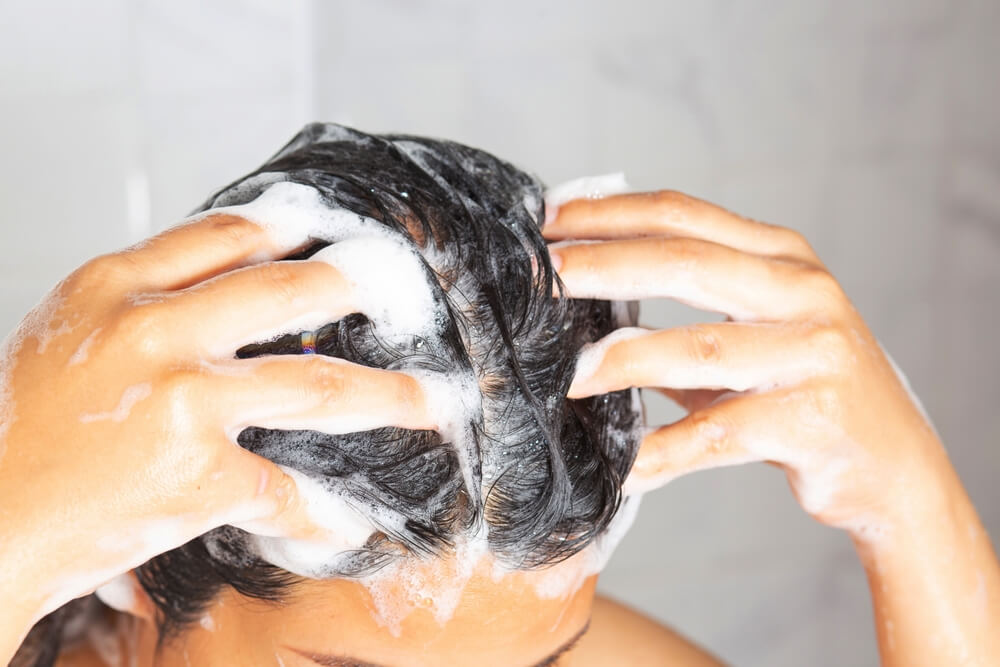Hair Care
Hair Care Myths Debunked: What You Shouldn’t Believe
Although the digital age has given us access to a whole world of knowledge, it also increases your chances of encountering, and believing, misinformation. When it comes to hair care, there are so many myths out there, and some of them can be dangerous.
So, today, Nubi is going to set the record straight and debunk some of the most common hair care myths around. Let’s get started!
Myth: Split Ends Can Be Repaired
It’s easy to see why this hair care myth is so popularized. From TV adverts to product packaging, many brands claim to have produced formulas that are capable of repairing split ends, but this is, unfortunately, not true.
Split ends occur when the ends of your strands split into two, forming a Y-shape. It signifies a breakage in your hair – one that can’t be fixed. It’s not possible to fuse that split strand of hair back together. The only way to get rid of it is to trim it off. If you don’t, that split will only continue to travel through that strand, causing it to break further up too.
With that said, although you can’t repair split ends, there are ways to make them look less noticeable until you’re able to pay a visit to your hair salon. Any products that add moisture back into your hair, from hair masks to deep conditioners to hair serums, will help to temporarily mask the appearance of your split ends while preventing things from worsening.
Myth: Air Drying Wet Hair is Safer Than Blow Drying

It’s common knowledge that excessive amounts of heat can damage the hair. So, it only makes sense to assume that allowing your hair to air dry instead of subjecting it to the heat of a blow dryer would be the safer option, right?
Not necessarily…
While there’s no denying the harmful effects that heat can have, hair being wet can be damaging in itself. When your strands are saturated with water, the hair fibers swell. This significantly weakens them, making them more prone to breakages. Ideally, you want your wet hair to dry as quickly as possible to prevent this damage, which is where heat can be a useful tool.
The key lies in finding the right balance between the two so that you can minimize the appearance of damage from both. This means giving your hair some time to air dry to start with. Once it’s about 80% dry, turn to your blow dryer to help finish the job. One study found that a continuous motion at a distance of 15cm from the hair’s surface causes less damage than allowing the hair to continue air drying naturally.
A high-quality blow dryer is important too. The more powerful the motor, the faster it will dry your hair, which is why people love the Nubi Blow Me Away hairdryer. It also comes with two concentrator attachments, which will help you to achieve a more defined finish.
Myth: You Should Shampoo Your Hair X Times a Week
Do an online search for how often you should shampoo your hair and you’ll have so many different answers to sieve through. Some say three times a week, others recommend twice, a few advise once…
People often end up believing one of these numbers and following that to the book. Unfortunately, this can be detrimental in the long run. Why? Because there isn’t a set number of times that you should be washing your hair each week. Instead, you should only be washing it when it actually needs to be washed.
By following a schedule, you run the risk of over-washing your hair. This strips your strands and your scalp of vital sebum, which keeps everything naturally conditioned and moisturized. Sure, once that sebum builds up and your hair starts to look greasy, go ahead and wash it. However, if this hasn’t happened and your hair looks happy enough, leave it be!
Myth: Brushing Your Hair 100 Times a Day Will Make it Look Shinier
The myth that you should be brushing your hair 100 times a day is one that has been passed down over several generations. Again, it’s easy to see how this hair care myth came about. Brushing your hair helps to distribute the natural oils produced by your scalp. This does, indeed, leave the hair feeling silkier and looking shinier.
There’s no denying the benefits of brushing – it’s a must! However, 100 times a day? For most people, that would be overkill. As important as brushing may be, over-brushing has the opposite effect. It damages your strands instead of helping them. The friction that’s created will leave your strands more vulnerable to breakages. Plus, over-brushing curly hair will also encourage frizz by breaking up your natural curl pattern.
Just like when it comes to shampooing your hair, there’s no set number of times you should be brushing it. Instead, brush it as much as you need to to remove any tangles and knots, and then leave it at that. Not only will you be doing your hair a favor, but you’ll also save some time in your hair care routine!
Myth: Plucking Out a Gray Hair Will Cause Three More to Appear
Another hair care myth that you may have heard from your mother or grandmother is that plucking out a gray hair will only cause two or three new grays to grow in its place. This threat is often enough to persuade people to put their tweezers away and leave their graying strands in place (until they turn to the hair dye, that is!).
However, there’s no truth whatsoever behind this myth. Each hair follicle on your head only produces one strand of hair. It doesn’t matter whether that strand is gray, black, blonde, or anything else. Plucking it out isn’t going to change the fact that that specific hair follicle will only be able to grow a single hair to replace the one that you’ve just removed.
With that said, this doesn’t mean that you should start plucking out your grays. Doing so can damage your hair follicles, causing them to stop growing hair altogether. Sure, this means that those grays won’t return but you could also end up with prematurely thinning or balding hair. Instead, try giving your grays a trim as close to the root as possible.
Myth: A Cold Water Rinse Will Leave Hair Looking Glossier
Sometimes, hair care myths end up going viral on social media. The cold water rinse was one of those, with many claiming that blasting your hair with cold water after you’ve almost finished rinsing your conditioner out will help to seal hair cuticles and leave it looking shinier.
It sounds scientific enough, making it easy to understand why so many believe it. However, again, it’s not true. There’s no proof whatsoever that this method can increase shine in any way. In fact, many experts say that it can have the opposite effect. The sudden cold temperature could restrict blood flow in your scalp, meaning that your capillaries won’t have as many nutrients to feed to your strands.
Instead, if you’re hoping for shinier locks after showering, there are a couple of other things you could try. Firstly, turn your water temperature down. It doesn’t need to be cold but it shouldn’t be hot either. Hot water will melt away your hair’s natural oils, causing it to look dry and brittle.
You could also try aiming your showerhead at the mid-shaft of your hair, rather than your scalp. Again, this will preserve more of your hair’s natural oils, giving it a healthier-looking finish.
Myth: Oily Hair Doesn’t Need to Be Conditioned
People with oily hair often try to keep their hair care routines simple. After all, with the hair already producing so much excess oil, surely cutting back on the number of products that you use would be beneficial?
In some ways, yes, but not if this includes skipping your conditioner. This is a product that’s vital for everyone, no matter how dry or oily your hair is. Conditioners keep your locks feeling protected against environmental damage while also providing a boost of moisture, meaning water rather than oil.
Sure, some conditioners are loaded with oils that will only weigh your already oily hair down, but the solution is to look for a formula that has been designed for oily strands. In fact, the hydration that a lightweight conditioner provides could even help to slow down sebum production in the long run. Sometimes, the scalp only overproduces oil when it’s lacking in moisture, and a good conditioner could help to rectify this.
Myth: Regular Trims Will Encourage Hair to Grow Faster
Let’s round things up with one of the most common hair care myths out there; trimming your strands will encourage them to grow faster. While this may be a myth that you desperately want to believe, trimming the ends of your hair isn’t going to have any sort of effect on the growth that takes place at the roots.
Hair growth is a cycle – one that’s determined by genetics. Trimming your hair won’t be able to stimulate this cycle in any way.
While that may be the case, this doesn’t mean that you shouldn’t have regular trims. As we mentioned earlier, this is the only way to get rid of split ends. Doing so will reduce breakages further up your strands while leaving your hair looking healthier and fuller. This can also have the effect of making strands appear longer, which is likely how this myth first came about!
Debunking Hair Care Myths With Nubi
At Nubi, we believe that it’s important for everyone to have all of the right information when it comes to hair care. Knowledge is key to keeping your mane looking and feeling its healthiest. So, if you’ve been unwittingly following any of the myths that we’ve shared above, make the necessary changes to your routine and your hair should start to look better as a result!



